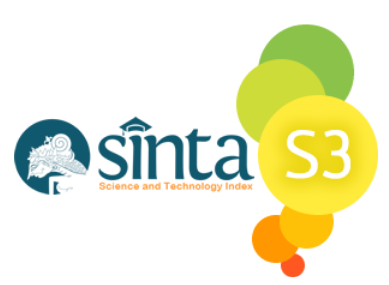DYNAMIC GOVERNANCE BASED EDUCATIONAL TOURISM DEVELOPMENT MODEL IN INDONESIA
Abstract
Educational tourism has dynamic developments, as well as problems that change along with global developments, including in Indonesia. It is important to develop educational tourism as an effort to provide learning to the public, and especially school students. The aim of this research is to identify the development of educational tourism in Indonesia, as well as to formulate a policy implementation model in Indonesia. This research uses qualitative methods with discourse network analysis. Data sources were obtained from cyberspace in the form of mass media and trusted articles. Based on the results of the analysis, the results showed that there were 5 actors that could be photographed, namely non-governmental organizations, academics, government, public and private sectors. The five actors expressed several opinions regarding the 9 key issues in this research, namely nature education, innovation, education tourism development, infrastructure, human resources, facilities, technology, history and stakeholders. From the results of these variables, a policy recommendation model was formed which was moderated by the concept of dynamic governance, namely thinking ahead, thinking again, and thinking across.
Keywords
Full Text:
PDFReferences
Neo, B. S., & Chen, G. (2007). Dynamic governance: Embedding culture, capabilities and change in Singapore (English version). WorldScientific.
Nugroho, SBM. (2020). Several Problems in the Development of the Tourism Sector in Indonesia. Semarang: Diponegoro University.
Leifeld, P., & Haunss, S. (2011). Political discourse nteworks and the conflict over software patents in Europe. European Journal of Political Research. https://doi.org/10.1111/j.1475-6765.2011.02003.x
Roger, D. (1998). Leisure, Learning and Travel. Journal of Physical Education, Research and Dance, 69(4), pp.28-31.
Smith, M., & Kelly, C. (2006). Holistic Tourism: Journeys of the Self? Tourism Recreation Research. https://doi.org/10.1080/02508281
DOI: https://doi.org/10.5281/zenodo.10464872
Refbacks
- There are currently no refbacks.
Copyright (c) 2024 Erudio Journal of Educational Innovation

This work is licensed under a Creative Commons Attribution 4.0 International License.












